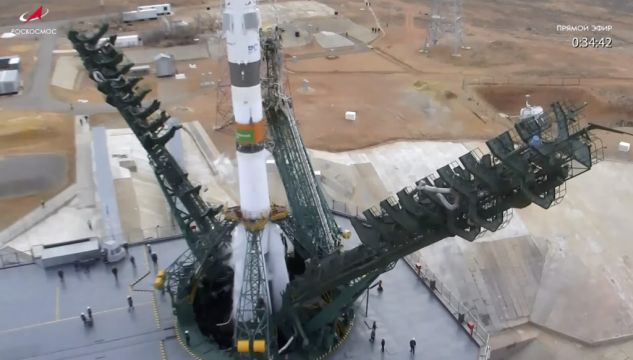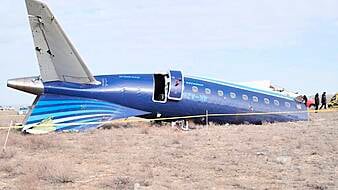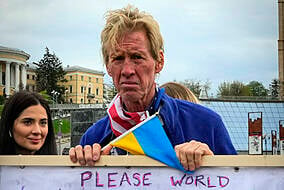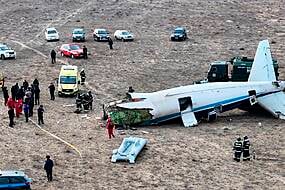A Russian Soyuz rocket carrying three astronauts to the International Space Station has blasted off, two days after its launch was aborted at the last minute.
The spacecraft carrying Nasa astronaut Tracy Dyson, Russian Oleg Novitsky and Marina Vasilevskaya of Belarus launched with no apparent problems from the Russian-leased Baikonur launch facility in Kazakhstan.
The launch had been planned for Thursday, but was halted by an automatic safety system about 20 seconds before the scheduled lift-off.
The head of the Russian space agency, Yuri Borisov, said the launch abort was triggered by a voltage drop in a power source.
Belarus spaceflight participant Marina Vasilevskaya, NASA astronaut Tracy Dyson, and Roscosmos cosmonaut Oleg Novitskiy wave as they board their Soyuz rocket for launch to @Space_Station 📷: https://t.co/TMO3G0eIai pic.twitter.com/u4C12LJHAU
Advertisement— NASA HQ PHOTO (@nasahqphoto) March 23, 2024
After the successful launch on Saturday, the space capsule atop the rocket separated and went into orbit eight minutes after the launch and began its two-day, 34-orbit trip to the space station.
If the launch had gone as scheduled on Thursday, the journey would have been much shorter, requiring only two orbits. Docking is now expected at 3.10pm GMT on Monday.
The three astronauts were to join the station’s crew consisting of Nasa astronauts Loral O’Hara, Matthew Dominick, Mike Barratt, and Jeanette Epps, as well as Russians Oleg Kononenko, Nikolai Chub, and Alexander Grebenkin.
Liftoff! NASA astronaut Tracy Dyson, Roscosmos cosmonaut Oleg Novitskiy, and Belarus spaceflight participant Marina Vasilevskaya begin their journey to @Space_Station. 📷: https://t.co/TMO3G0eIai pic.twitter.com/rvVAlA5Uj8
Advertisement— NASA HQ PHOTO (@nasahqphoto) March 23, 2024
Novitsky, Vasilevskaya and O’Hara are to return to Earth on April 6.
The space station, which has served as a symbol of post-Cold War international cooperation, is now one of the last remaining areas of collaboration between Russia and the West amid tensions over Moscow’s military action in Ukraine.
Nasa and its partners hope to continue operating the orbiting outpost until 2030.
Russia has continued to rely on modified versions of Soviet-designed rockets for commercial satellites, as well as crews and cargo to the space station.







